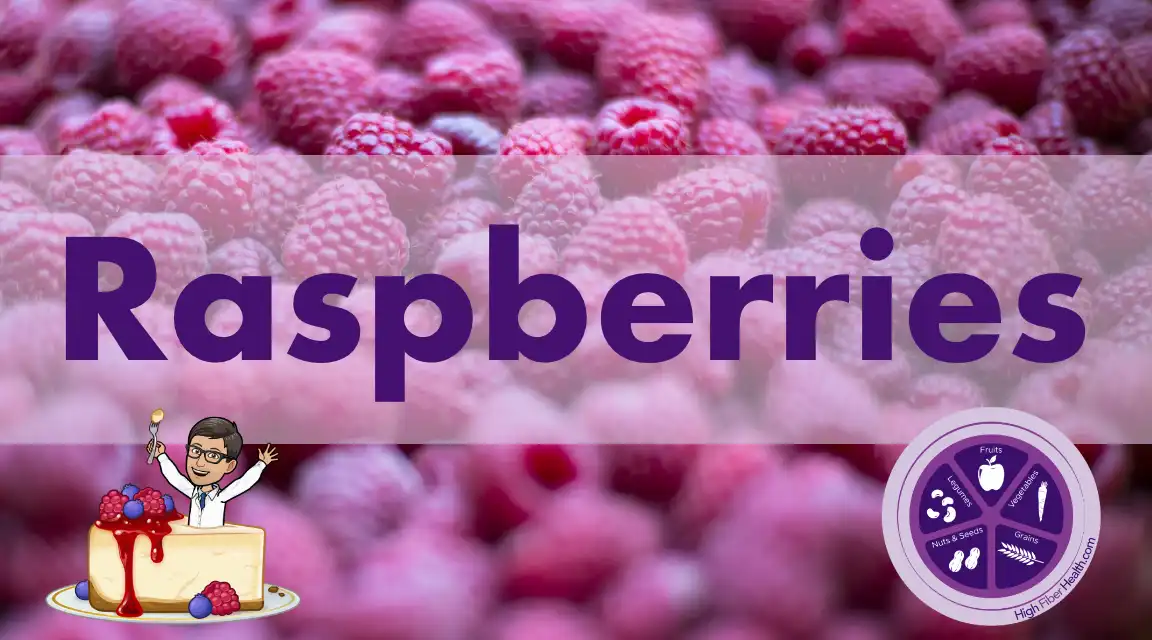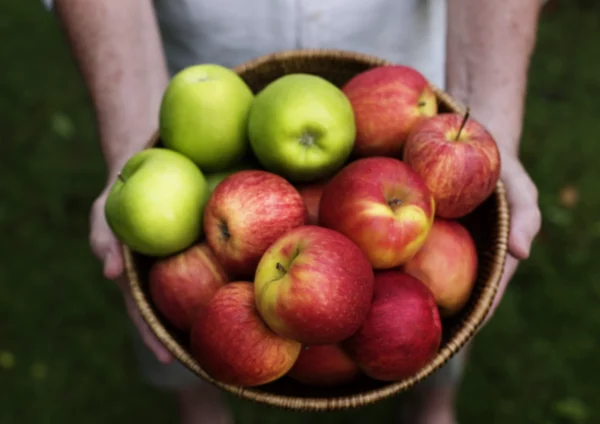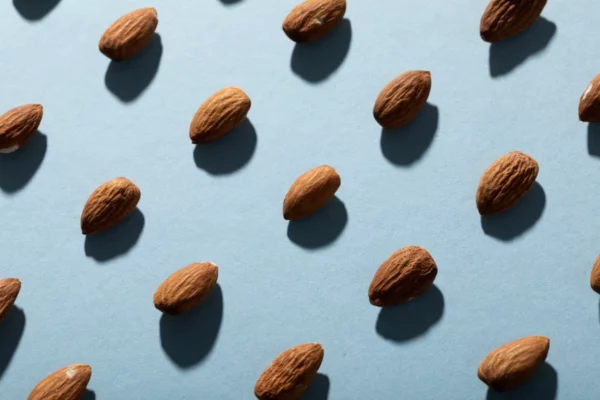Introduction:
Raspberries are not only delicious but also packed with essential nutrients and health benefits. In this article, we will delve into the various ways raspberries can contribute to a healthy lifestyle, aiding in weight loss and overall metabolic health. From their high fiber content to their antioxidant properties, there are numerous reasons to incorporate raspberries into your daily diet.
How do raspberries help in weight loss?
- Fiber Content: Raspberries are an excellent source of dietary fiber, which plays a crucial role in weight loss. One cup of raspberries provides approximately 8 grams of fiber, contributing to a feeling of fullness and reducing the urge to overeat.
- Low-Calorie Option: Raspberries are relatively low in calories compared to other fruits, making them a great addition to any weight loss diet. With only about 65 calories per cup, raspberries allow you to enjoy a sweet treat without consuming excessive calories.
- High Water Content: With a water content of around 85%, raspberries help keep you hydrated while promoting weight loss. Staying hydrated is important for proper digestion and metabolism, aiding in the breakdown of fats.
- Natural Appetite Suppressant: The fiber in raspberries helps control hunger by slowing down the digestion process. This leads to a longer-lasting feeling of fullness, reducing your overall calorie intake.
- Metabolism Boost: Raspberries contain a natural compound called raspberry ketones, which have been shown to enhance fat metabolism. By increasing the breakdown of fat cells, raspberry ketones may contribute to weight loss efforts.
What are the health benefits of raspberries?
- Antioxidant Powerhouse: Raspberries are packed with powerful antioxidants that help protect the body against oxidative stress caused by free radicals. These antioxidants, including vitamin C and vitamin E, play a vital role in maintaining overall health and preventing chronic diseases.
- Heart Health Support: The high content of fiber and antioxidants in raspberries is beneficial for heart health. Fiber helps lower cholesterol levels and maintain healthy blood pressure, reducing the risk of heart diseases such as heart attacks and strokes.
- Blood Sugar Management: The fiber content in raspberries aids in regulating blood sugar levels, making them an excellent choice for individuals with diabetes or those looking to prevent insulin resistance. The natural sugars in raspberries are slowly released into the bloodstream, preventing sugar spikes.
- Improved Digestion: The fiber in raspberries acts as a natural laxative, promoting regular bowel movements and preventing constipation. A healthy digestive system is essential for nutrient absorption and overall gut health.
- Skin Health: Raspberries are rich in antioxidants, including ellagic acid, which helps combat skin cell damage caused by environmental factors. Regular consumption of raspberries may improve skin elasticity, reduce signs of aging, and promote a healthy complexion.
Incorporating Raspberries into Your Diet
Here are some tips on how to incorporate raspberries into your daily diet:
- Smoothies: Add a handful of raspberries to your favorite smoothie recipe for an extra burst of flavor and nutritional benefits.
- Breakfast: Sprinkle raspberries over oatmeal or cereal to add a touch of sweetness and fiber to your morning meal.
- Snacks: Enjoy raspberries as a healthy snack option on their own or paired with yogurt or nuts for a satisfying and nutritious treat.
- Salads: Toss a handful of raspberries into your salads for added color, flavor, and a nutritional boost.
- Desserts: Use raspberries as a topping for yogurt, ice cream, or even as a flavorful addition to baked goods like muffins or tarts.
| Benefits of Raspberries | Ways to Incorporate Raspberries into Your Diet |
|---|---|
| Aid in weight loss | Adding to smoothies |
| Promote heart health | Sprinkling on breakfast cereals |
| Manage blood sugar levels | Enjoying as a snack by itself or paired with other foods |
| Support healthy digestion | Adding to salads |
| Improve skin health | Using as toppings for desserts |
Can raspberries help prevent chronic diseases?
- Cancer Prevention: Raspberries are rich in antioxidants, such as ellagic acid. Research suggests that these compounds have anti-cancer properties and may help inhibit the growth of cancer cells. Regular consumption of raspberries may contribute to reducing the risk of certain types of cancer.
- Eye Health: Raspberries contain a high concentration of antioxidants, including vitamin C and vitamin E, which are essential for maintaining good eye health. These antioxidants help protect against age-related macular degeneration and other vision-related conditions.
- Brain Health: The antioxidants in raspberries have also been linked to improved brain function and protection against age-related cognitive decline. They help reduce oxidative stress, which can contribute to neurodegenerative conditions like Alzheimer’s disease.
- Anti-Inflammatory Properties: Chronic inflammation is associated with various diseases, including heart disease, diabetes, and certain types of cancer. Raspberries contain compounds that possess anti-inflammatory properties, which may help alleviate inflammation and reduce the risk of developing such conditions.
- Gut Health: The high fiber content in raspberries promotes a healthy gut by supporting the growth of beneficial gut bacteria. This can help improve digestion, boost the immune system, and prevent gastrointestinal disorders.
How to select and store raspberries?
- Choosing Ripe Raspberries: Look for raspberries that are firm, plump, and vibrant in color. Avoid ones that are mushy or have signs of mold. The berries should easily detach from the stem when gently pulled.
- Storage Tips: Refrigerate raspberries unwashed and in a single layer to prevent crushing and spoilage. They can stay fresh for up to three days. However, consume them as soon as possible for optimal flavor and nutritional value.
- Freezing Raspberries: If you have an abundance of raspberries, freezing them is a great way to preserve their freshness. Rinse and pat them dry, then spread them out on a baking sheet in a single layer. Once frozen, transfer them to a freezer bag or airtight container. They can be stored in the freezer for up to six months.
Are there any side effects or allergies to be aware of?
Most people can enjoy raspberries without experiencing any adverse effects. However, some individuals may be allergic to raspberries or other fruits in the same family. Allergic reactions can include symptoms such as itching, swelling, hives, or difficulty breathing. If you have a known allergy to other berries, it’s best to consult with a healthcare professional before incorporating raspberries into your diet.
| Health Benefits of Raspberries | Selection and Storage Tips |
|---|---|
| Aid in cancer prevention | Choosing ripe raspberries |
| Support eye and brain health | Proper storage and refrigeration |
| Reduce inflammation | Freezing excess raspberries |
| Promote gut health | Side effects and allergies |
Conclusion
Raspberries offer a range of health benefits, making them a valuable addition to a balanced and nutritious diet. From aiding in weight loss to supporting heart health, preventing chronic diseases, and promoting brain function, these delightful berries are a powerhouse of nutrition. With their vibrant color, tart flavor, and versatility in various dishes, raspberries provide a delicious and healthy way to enhance your overall well-being. So, why not start incorporating this delightful fruit into your daily routine and reap the rewards of its exceptional nutritional profile?
Incorporating raspberries into your diet can provide numerous health benefits, including weight loss support, improved heart health, and enhanced skin vitality. Raspberries’ high fiber content, antioxidant properties, and low-calorie nature make them an excellent addition to any healthy lifestyle. So, head to your nearest grocery store and stock up on this delicious fruit that offers a wide range of benefits for your overall well-being.
Keto High-Fiber Raspberry Parfait
Ingredients:
- 1 cup fresh raspberries (frozen can also be used if thawed)
- 1 cup full-fat Greek yogurt or coconut yogurt for a dairy-free option
- 2 tbsp chia seeds
- 1/4 cup almond flour
- 2 tbsp unsweetened shredded coconut
- 2 tbsp erythritol or another keto-friendly sweetener of choice (adjust to taste)
- 1/2 tsp vanilla extract
- A pinch of salt
- A few drops of liquid Stevia (optional, for extra sweetness if desired)
- 2 tbsp unsweetened almond milk or coconut milk
- Optional toppings: a few cacao nibs, nuts, or seeds for crunch
Instructions:
- Chia Pudding Layer:
- In a small bowl, mix the chia seeds with the almond milk. Allow the mixture to sit for about 10-15 minutes, stirring occasionally, until the chia seeds have absorbed the liquid and the consistency is gel-like.
- Almond Coconut Crunch Layer:
- In a skillet over medium heat, toast the almond flour and shredded coconut until lightly golden. Stir constantly to prevent burning. This should take about 2-4 minutes.
- Remove from heat and allow to cool. Mix in a pinch of salt and 1 tbsp of erythritol or your preferred sweetener.
- Yogurt Layer:
- In a bowl, combine the full-fat Greek yogurt (or coconut yogurt), vanilla extract, and the remaining erythritol. Add a few drops of liquid Stevia if additional sweetness is desired. Mix until smooth.
- Assembling the Parfait:
- In a glass or jar, start by layering a portion of the yogurt mixture.
- Add a layer of the raspberry.
- Sprinkle some of the almond coconut crunch.
- Layer with chia pudding.
- Repeat the layers until the glass or jar is filled.
- Top with optional toppings like cacao nibs, additional raspberries, or other nuts and seeds for added crunch.
- Enjoy immediately or refrigerate for a few hours to let the flavors meld together.
Each serving of this raspberry parfait will be rich in healthy fats, fiber, and protein while keeping the carb content low, making it perfect for a keto diet. Adjust the sweetener as per your taste and carb limit.









